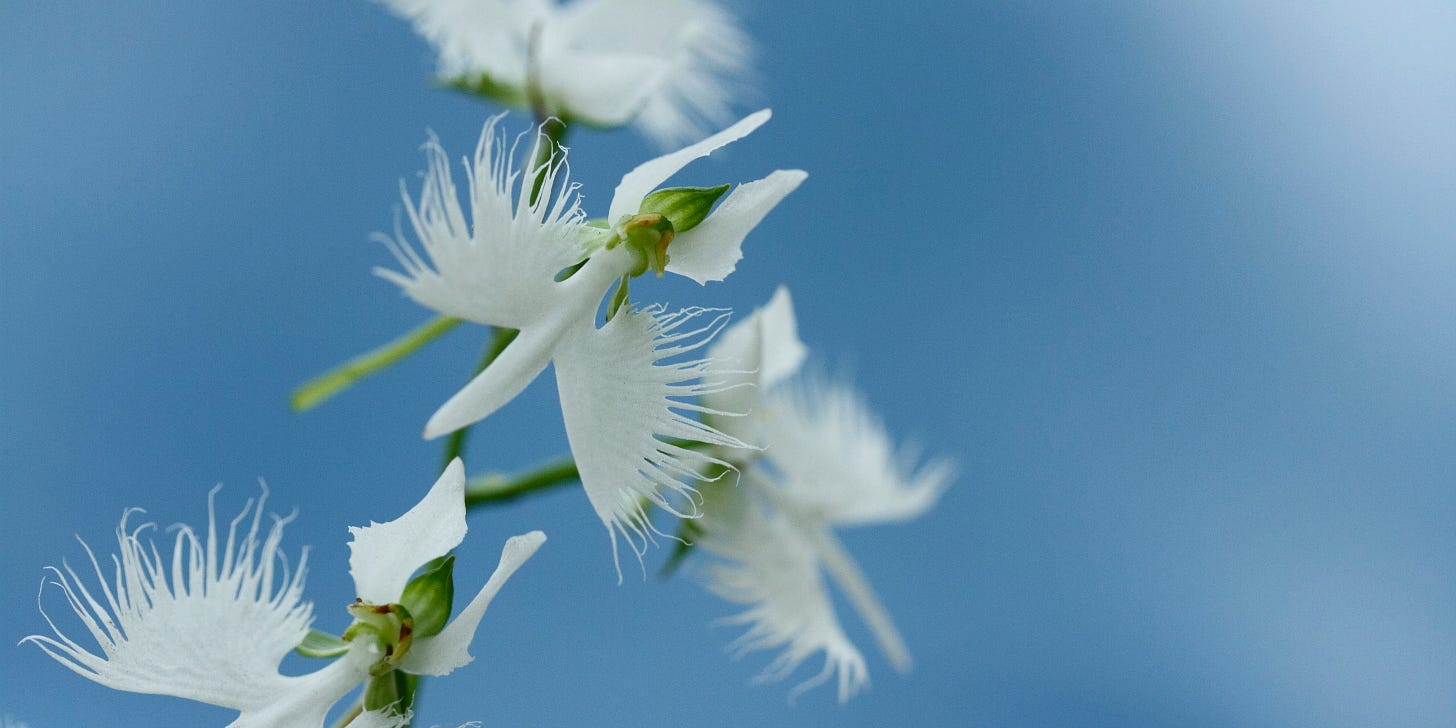My brother’s birthday is in a few days. He would’ve been 25. Since he died I’ve found solace in ghost stories. Not because I believe in ghosts, but because we have to believe in death. There’s no denying its rule. Every tv show or book or memoir featuring a death that I would have previously considered too sad to turn to is now a dear companion iterating the banality of bereavement. I take comfort in that. Grief just means having something in common with the rest of the world.
I remember, before my own loss, telling people that I was sorry for their loss. It would embarrass me how useless and insufficient it felt to offer — an inadequate gesture from the well meaning but helpless. What else can we possibly say or do?
Being on the receiving end taught me that despite the heart shattering pain of losing a loved one, the appropriate response to it is actually blessedly simple. The phrase “sorry for your loss” is small, but perfect. No matter how many times I hear it, it retains its value. When someone tells me they’re sorry for my loss I can acknowledge I am too. It’s so uncomplicated, so complete. Even that quality is some respite from the incompleteness of a grief that will last forever. It’s the only stable truth when your life transforms because someone else’s ended.
My brother’s death struck my family like lightning. Which, rather than dissipating in a flash, now glows like a hot iron branding the fact of his death every day. To have that go unnoticed would feel absurd and cruel. And since it can’t be removed, the acknowledgement that it’s visible means my brother is visible, even if only in the outline his absence leaves behind.
While my own expression of grief tides unpredictably, what I’ve appreciated from others remains the same. I want the loss observed. My brother positively impacted a lot of people and he would have doubtlessly continued to do so. His presence held meaning. That he’s now gone holds meaning. Recognizing his loss honors the fact that he once lived. Condolences are not words or acts that will ease the pain (none can) they are a way of communicating that you see it. Maybe that’s why mourning rituals around the world involve the company of others. They bear witness to the unbearable. So when people acknowledge my brother’s passing, no matter what expression they use, the sentiment is like a hand squeezing mine.
Remembrance is the only mode of living spared by time. It remains available to us until the end while everything else falls away. Islam’s emphasis on relating to life through the fact of eventual death makes sense when you consider that a recognition of loss might be the only way to honor life at all, and every attempt to decouple life from an awareness of loss is an act of hubris against nature. It certainly sounds like hubris when the recent pandemic is viewed linearly, declared “over” with celebratory announcements of “re-openings” and the promise of the summer ahead as if almost a million people didn’t just die.
The etiquette of consolation has scale. Sorrow loses its sting when it’s seen. Hearing from people who know grief reminds me how natural it is. We are born to lose, and live among each other to acknowledge the loss.
Liked this ? Let me know by becoming a subscriber, or even supporting in kind through venmo @ayeshaasiddiqi



